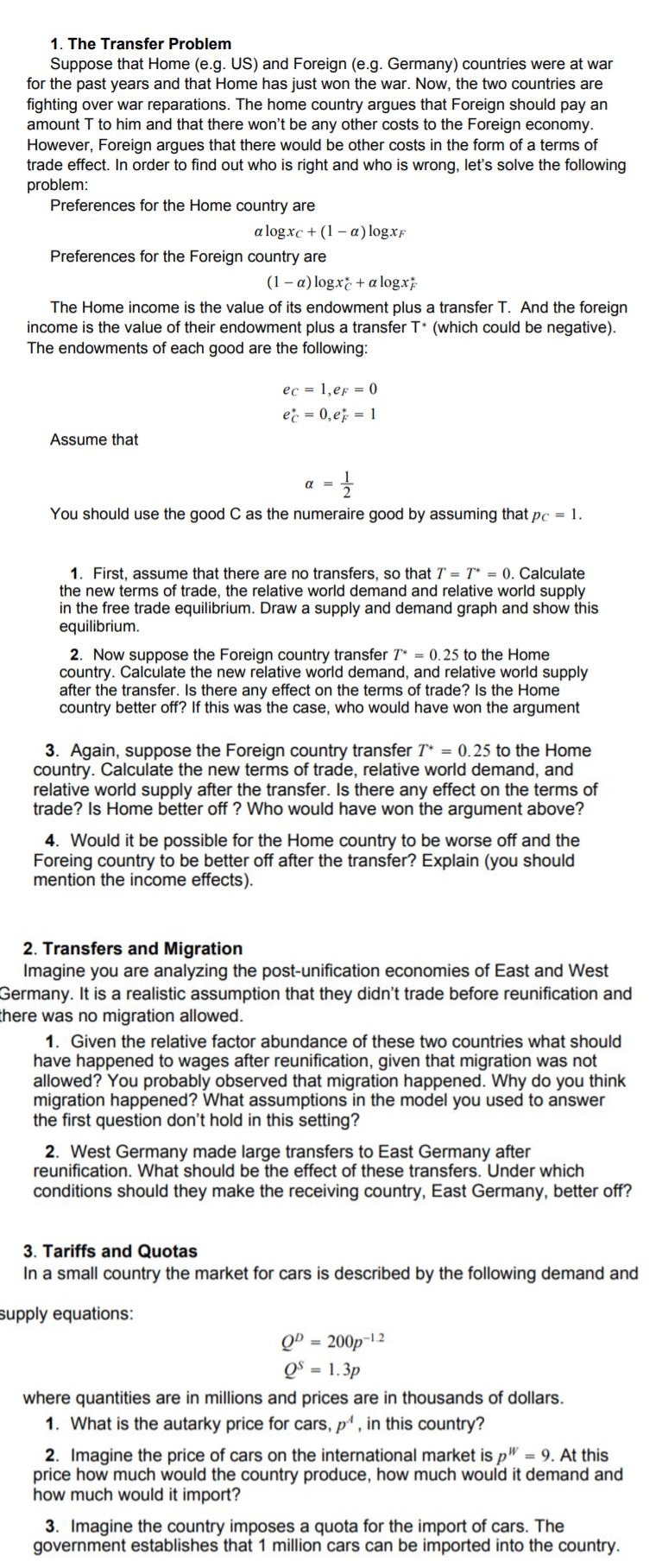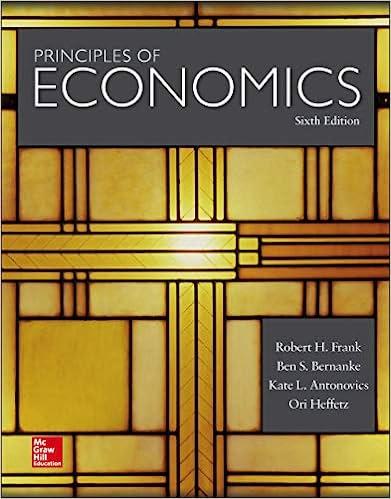provide solution for this.
1. The Transfer Problem Suppose that Home (e.g. US) and Foreign (e.g. Germany) countries were at war for the past years and that Home has just won the war. Now, the two countries are ghting over war reparations. The home country argues that Foreign should pay an amount T to him and that there won't be any other costs to the Foreign economy. However. Foreign argues that there would be other costs in the form of a terms of trade effect. In order to nd out who is right and who is wrong, let's solve the following problem: Preferences for the Home country are or logxc + (l n) logxp Preferences for the Foreign country are (l 7 a) long + a logic;- The Home income is the value of its endowment plus a transfer T. And the foreign income is the value of their endowment plus a transfer T' (which could be negative). The endowments of each good are the following: Assume that You should use the good 0 as the numeraire good by assuming that pr = l. 1. First. assume that there are no transfers. so that T = T' = 0. Calculate the new terms of trade. the relative world demand and relative world suppty in the free trade equilibrium. Draw a supply and demand graph and show this equilibrium. 2. Now suppose the Foreign country transfer T\" = 0.25 to the Home country. Calculate the new relative world demand. and relative worid supply after the transfer. Is there any effect on the terms of trade? Is the Home country better off? If this was the case, who would have won the argument 3. Again, suppose the Foreign country transfer T' = 0.25 to the Home country. Calculate the new terms of trade. relative wodd demand. and relative wortd supply atter the transfer. Is there any effect on the terms of trade? ls Home better off ? Who would have won the argument above? 4. Would it be possible for the Home country to be worse off and the Foreing country to be better off after the transfer? Explain (you should mention the income effects). 2. Transfers and Migration Imagine you are analyzing the post-unication economies of East and West Germany. It is a realistic assumption that they didn't trade before reunication and there was no migration allowed. 1. Given the relative factor abundance of these two countries what should have happened to wages after reunication. given that migration was not allowed? You probably observed that migration happened. Why do you think migration happened? What assumptions in the model you used to answer the first question don't hold in this setting? 2. West Germany made large transfers to East Germany alter reunication. What should be the effect of these transfers. Under which conditions should they make the receiving country, East Gen'nany. better off? 3. Tariffs and Quotes In a small country the market for cars is described by the (allowing demand and supply equations: QB , 200p": Qs - 1-31! where quanties are In millions and prices are in thousands of dollars. 1. What is the autarky price for cars. p" . in this country? 2. Imagine the pdce of cars on the intematlonal market is p"r . 9. At this price how much would the country produce. how much would it demand and how much would it import? 3. Imagine the country imposes a quota for the import of cars. The government establishes that 1 million cars can be imported into the country







